With gratitude to God for a life well spent — and I mean every word of it — I mourn the passing of Air Vice Marshall George Ayo Osho (rtd), one of Nigeria’s first two presidential pilots, the first Nigerian Air Force (NAF) pilot to clock 6,000 flying hours, former acting governor of Lagos state — and definitely one of the best human beings that ever lived. Since creation, God has made billions of souls, but AVM Osho must be in the league of the most caring, the most humble, the most contented and the most selfless of them all. If it was possible for any mortal to be perfect, he would be my top nominee.
On October 13, 2018, he drew his last breath, aged 78. I never heard anyone say one bad word about him when he was alive. I once mentioned him to Gen. Abdulsalami Abubakar, former head of state, and he said only two words: “Perfect gentleman!” Gen. Abubakar should know — in 1963, he started his career in the air force, where he first met Osho, before moving to the army in 1966. Again, I proudly mentioned him to President Muhammadu Buhari years ago, and he too said only two words: “Perfect gentleman!” Gen. Buhari should know too — Osho flew him at the onset of the Civil War when Buhari was based in Makurdi, Benue state.
Osho served Nigeria with “heart and might”. He was operations officer and commander of NAF detachments in Makurdi, Enugu and Benin in the late 1960s. He was one of the key initiators of most of the post-Civil War policies of the air force with special reference to operations, training policies, force projection and NAF 2 establishments. He was the first NAF officer to attend the prestigious Defence Services Staff College in Wellington, India. He was “faithful, loyal and honest” — he was one officer known in military and civil service circles for returning his unspent estacode to the treasury whenever he came back from foreign trips.
He told me a lot of interesting stories about his service to fatherland and I must take the blame for not encouraging him to write a book. I was just sitting there, soaking in the compelling stories and never thinking I could have encouraged him to record history in his own words. By the time it crossed my mind, he had started battling old-age medical issues. Writing a book, or even sitting down for gruelling interviews for the purpose of writing a book, was no longer an option. He was such a self-effacing human being that it would even have been difficult to get him to talk on his service to the nation, much less his role in the development of the air force.
Advertisement
He once narrated to me his experience of the December 31, 1983 coup that ousted President Shehu Shagari. “I followed Gen. Buhari to NTA for his inaugural address to the nation after he was named head of state,” he said, joking that even though he was not involved in the planning of the coup (which was usually an army business), he could have been imprisoned or executed if it had failed. He said Justice George Sodeinde Sowemimo, then the chief justice of the federation, politely declined to swear in Buhari. Sowemimo said he was not authorised to swear in a military head of state and asked Buhari to simply raise his right hand, recite the oaths of office and that would be it!
My paternal grandfather was on his deathbed when the coup broadcast was made by a certain Brigadier Sani Abacha in the wee hours of December 31. When we told him of the coup, he said he had a feeling “Baba Tolu” (AVM Osho) would be given an appointment. My grandfather later died close to midnight same day, but Osho — who had been promoted to AVM that year — was not given an appointment. It was not until last year that he told me the full story. He was nominated to be chief of air staff by Brigadier Tunde Idiagbon, but Gen. Buhari said he had already promised the late AVM Ibrahim Alfa the position. He was instead appointed air officer operations (AOO).
He was AOO till 1989 when he retired. No other officer occupied the position for five years before or after him. He served as acting governor of Lagos for six months in 1977 when Navy Captain Samsudeen Adekunle Lawal, the military governor, fell ill. He handed over to Navy Commander Godwin Ndubisi Kanu (who retired as a Rear Admiral in 1993) when Kanu was made the substantive governor. For all his service to Nigeria, AVM Osho did not receive any national honour. He was nominated for the honour in 1999 by Gen. Abubakar’s government but all nominations were later nullified by President Olusegun Obasanjo, having not been officially conferred.
Advertisement
The most amazing aspect of AVM Osho’s life was his Christian service. He was love in motion. For as long as I can remember, he regularly went to Kirikiri prisons to minister to inmates, both spiritually and materially, on Wednesdays until his health could no longer handle it. When I visited him about five years ago, one young chap I had never met opened the gate for me. I later asked AVM Osho who the boy was, and he told me he was an ex-Kirikiri inmate. His parents had disowned him after he had served his prison term, and AVM Osho decided to adopt him. I marvelled. He practised the Christianity that he preached. ‘I was homeless and you took me in. I was naked and you clothed me…’
In him, I saw my inadequacies and failings as a human being and as a Christian. His mind was stubbornly fixed on eternity. It was all about what he could give than what he could get. I lived with him for seven years, between 1994 and 2001, and not once did I hear him make a personal prayer request during the nightly family altar. While the rest of us would be praying for new jobs and new businesses and other things “modern” Christians like me are primed to ask for, he had a different kind of prayer request. He would say: “Let us remember the widows in our prayers. Let us pray for those in prison and those who are in the hospital.”
He regularly led the Yoruba service at the Shepherdhill Baptist Church, Obanikoro, Lagos, until his health began to fail. But that is not the story. Anytime his one and only car began to throw tantrums at the crucial hour — such as refusing to start as tired cars are wont to do — he would simply walk to the road side, take a cab from his Ogudu residence to Ojota and take a bus to Obanikoro to go and tell his congregation that Jesus loves them. This is old time religion. A “whole” AVM — the equivalent of a major general in the army — going by public transport to church, in a country where to be a general is a licence to be a billionaire! He was a general when there were but a few generals, not the two for a penny as it is today. He never pitied himself. He was always at peace with himself. He never felt entitled.
He was contented. I was told Abacha offered him a ministerial appointment in 1995 but he turned it down. He had a land allocation in Abuja which papers he struggled for years to perfect. When he told me of his predicament in 2002, I wrote a passionate note to the then FCT minister, Engr. Mohammed Abba Gana, appealing that he should help issue the certificate of occupancy (C of O). I said, rather emotionally, that it was the only favour I would ever ask from him in my life. Engr Abba Gana, another compassionate Nigerian I was privileged to know, promptly obliged. I am normally very reluctant to ask for favours, but I would do anything for AVM Osho.
Advertisement
I was over the moon when he showed me the C of O. I was feeling like, “Finally, I did something for this great man!” I did not hear anything about the land again. A few years after, I asked him if he had started development or sold it, and he said, with a lot of pains on his face, that Mallam Nasir el-Rufai, who succeeded Abba Gana as FCT minister in 2003, had revoked the allocation. He sounded broken-hearted. I said I was going to raise the issue with el-Rufai, whom I barely knew at the time, but he said I should not worry, that the stress was too much for him. He was no longer interested in the allocation. He never owned a plot of land in FCT till he died.
AVM Osho took me on my first flying experience in 1983. I was a tiny secondary school boy holidaying in Lagos. Vice-President Alex Ekwueme had travelled to Enugu state on an official visit. AVM Osho flew Hercules C-130 to Enugu to bring Ekwueme’s official vehicles — two green-coloured Mercedes-Benz cars, as I recall — back to Lagos. I sat behind him in the cockpit having the experience of my life. As we were about to fly over River Niger, he beckoned on me. He “tilted” the aircraft a little to the side and said: “This is the River Niger.” My classmates in the village had to know I flew in an aeroplane! I was no longer their mate.
AVM Osho made such an impact on my life. I saw humility and compassion, godliness and contentment. If I could possess half of his virtues in this life, I would be a fulfilled man. He took me like a son. I started calling him “Daddy” from when I was five (I lost my father at 4). He acted as my father on my wedding day. Actually, he was married to my aunt. But he loved us so much and we so much loved him that you would think we were biologically related to him. An uncle of mine, writing under “appreciation” in his undergraduate dissertation, thanked AVM Osho profusely for his love and care. He wrote: “What else could a father have done?”
AND FOUR OTHER THINGS…
SANI VS SANI
Advertisement
I once said APC is the most disorganised ruling party in Nigeria’s history. I now wish to withdraw that statement. They are worse than that. Their conduct of the 2019 primaries made PDP look like a gathering of angels. The most dramatic must be the Kaduna central district, which Senator Shehu Sani currently represents. Mallam Uba Sani, his challenger, was mysteriously screened out by the party. Senator Sani was to be returned unopposed. The primary still went ahead and Uba Sani won. Shehu Sani appealed and it was upheld, but Uba Sani has finally won the tug-of-war. The senator has now quit the party in anger. Over all, APC is nothing but a house of commotion. Pathetic.
KANU IS BACK
Advertisement
After disappearing for over one year, Nnamdi Kanu, the supreme leader of Indigenous People of Biafra (IPOB), is back in the limelight. In the photos and videos shared online by Radio Biafra, the IPOB leader was seen observing some religious rites in Jerusalem. There are more questions than answers. Are the images recent? Would it not be a dangerous gambit for him to travel to Israel at a time he has been declared wanted in Nigeria? Are old videos being presented as fresh to create the impression that he has the support of Israel? The comforting thing for me, though, is that: going by new revelations, he has not been killed as alleged by IPOB. That settles the puzzle. Finally.
ADIOS, AMBODE
Advertisement
So Mr. Akinwunmi Ambode will not be a candidate in the 2019 governorship election? Wow. This would be the first time a governor of Lagos state would not be seeking re-election. It was not as if he didn’t try, just that his political weight was lighter than he thought. One big lesson I am picking from this is that if you want to take on your godfather, you must have enough bullets in your pouch. If I were Ambode, I would spend the remaining seven months in office working like mad. I would make sure there is no single pothole on any Lagos road, improve access to quality healthcare and upgrade education infrastructure all over the state. It is not how long but how well. Legacy.
AND FINALLY…
Advertisement
You must have seen the videos in which Dr. Abdullahi Ganduje, the governor of Kano state, appeared to be collecting bundles of dollars from unseen persons. The allegation is that he collected millions of dollars in kick-backs from contractors. The governor has denied the allegation, and one of his aides has comically described the videos as a “clone” (what is “clone”, fellow Nigerians?) The governor himself said his blood pressure has been normal despite the scandal. To be honest, except you are genetically prone to hypertension, collecting that volume of greenbacks is very good for your blood pressure. My blood pressure would be normal too. LOL.
1 comments

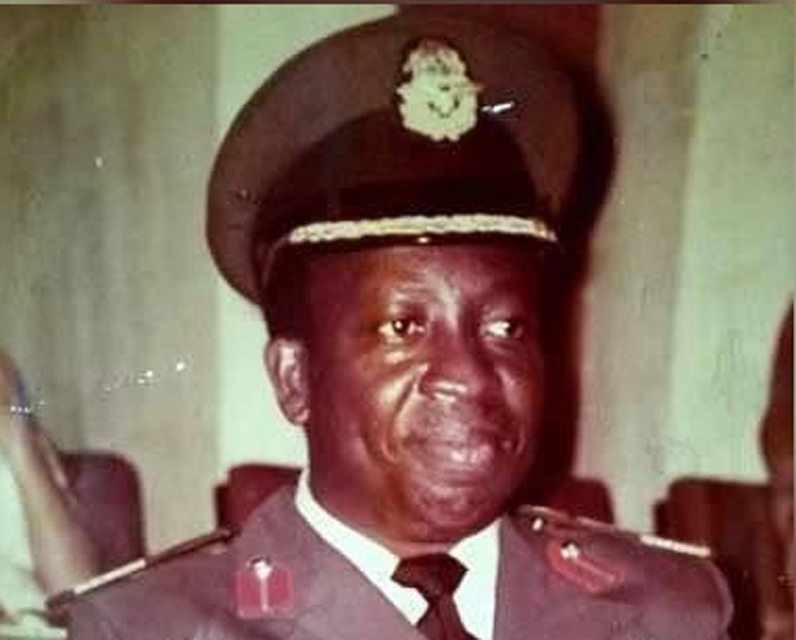

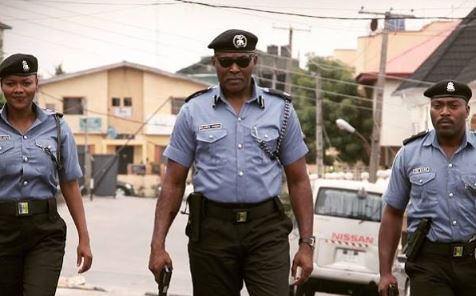
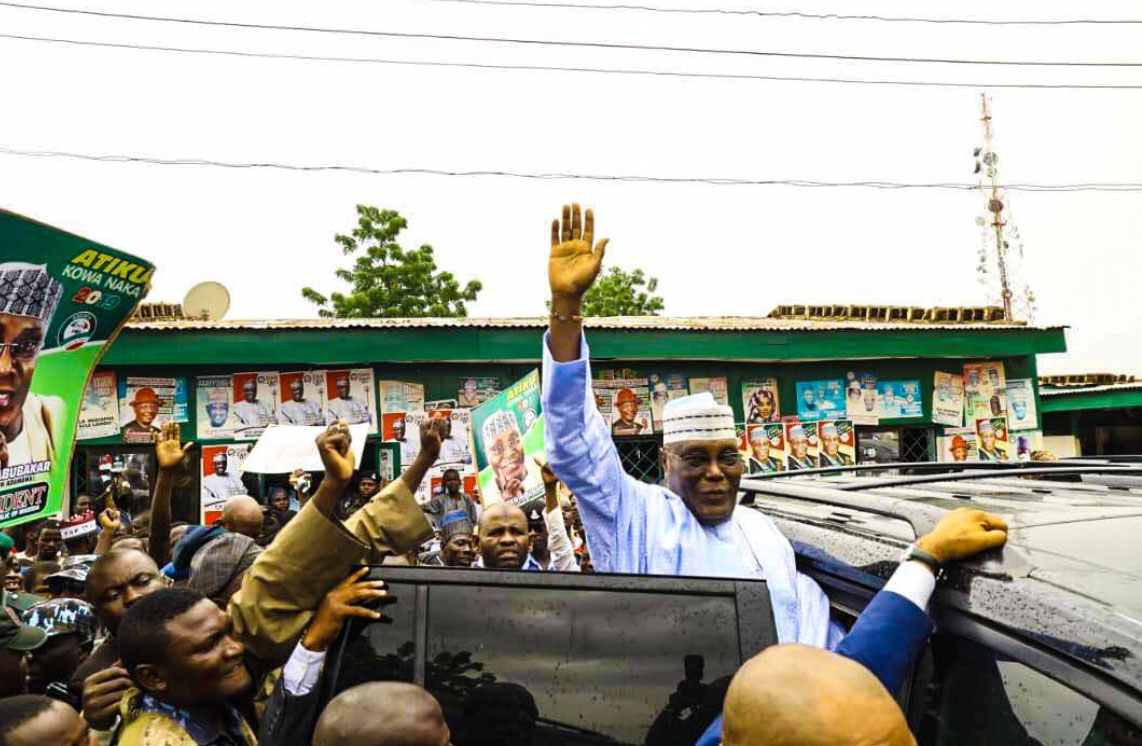
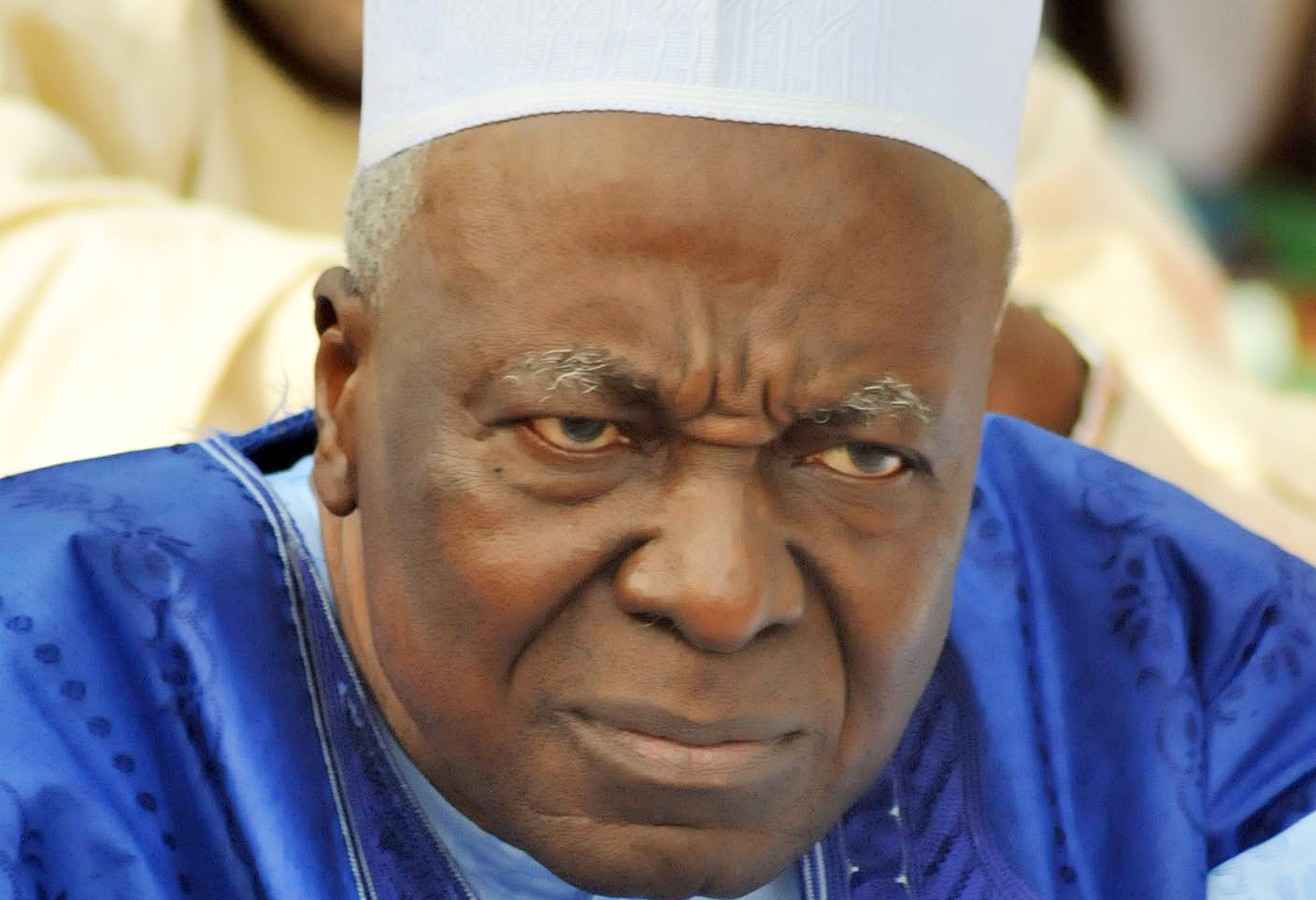
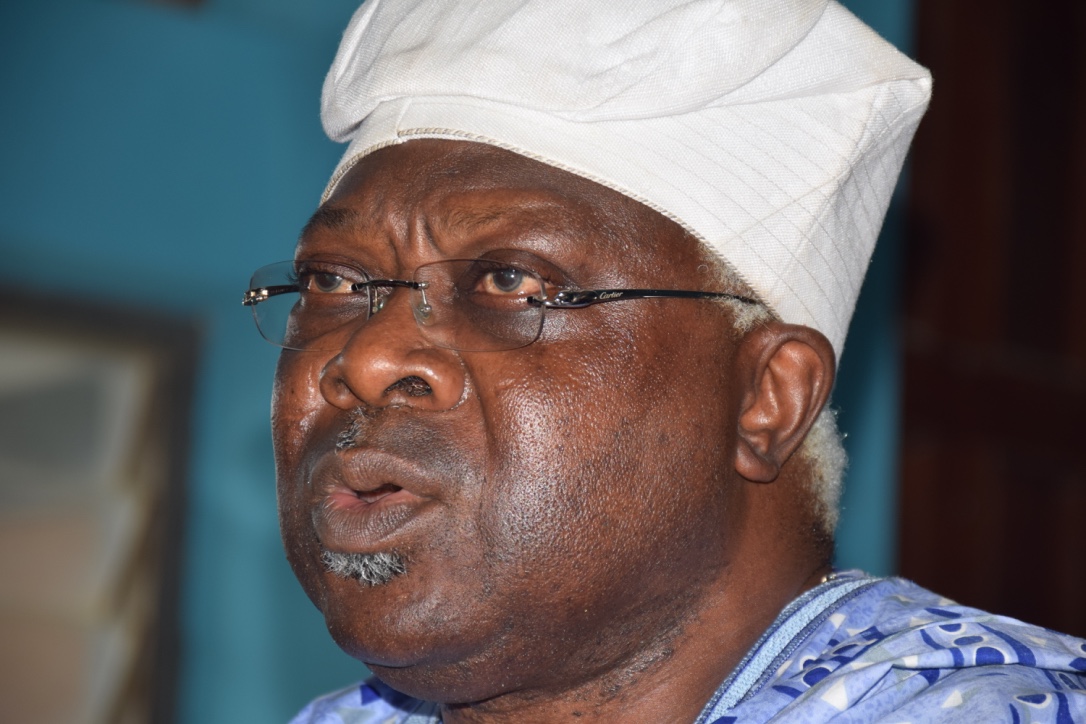
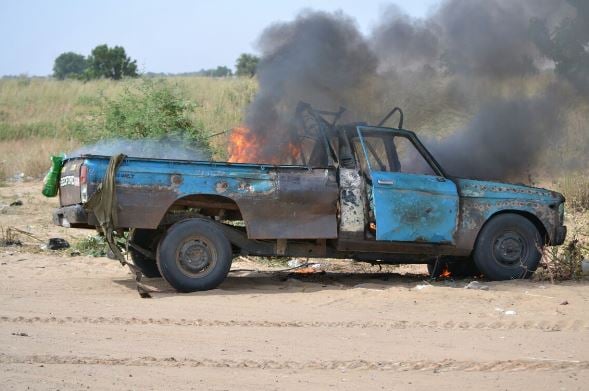
Dear Simon, thank you so very much for this tribute! It brought tears to my eyes. AVM George Ayo Osho was my father’s first cousin, and he lived with my dad in the ’60s. They shared a deep respectful, affectionate bond all through their lives. I never saw Uncle Ayo angry or dejected. He was generous, warm, friendly and humble, to a fault. He always had a smile, a word of wisdom, or a gesture of kindness for everyone. He will be sorely missed. They don’t make men like him, anymore.